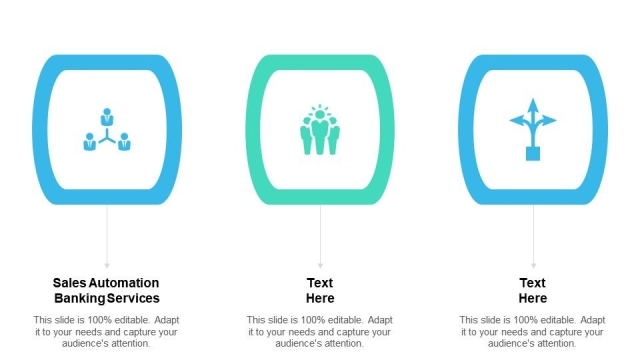As technology continues to advance at an unprecedented pace, it comes as no surprise that the banking industry has also adopted automated solutions to streamline its operations. The rise of banking automation has revolutionized the way we handle our finances, making transactions faster, more convenient, and efficient. From online banking portals to mobile apps and ATMs, these automated systems have become an integral part of our everyday lives, transforming the way we interact with financial institutions.
Gone are the days of waiting in long queues and dealing with manual paperwork at the bank. With banking automation, customers now have access to a wide range of services at their fingertips. Whether it’s transferring funds, paying bills, or applying for loans, these automated solutions have simplified these once time-consuming tasks, empowering individuals to take control of their financial lives.
In this guide, we will explore the various aspects of banking automation, providing you with a comprehensive understanding of the solutions available in the market. From the basics of online banking to the complexities of artificial intelligence-powered chatbots, we will delve into the world of automated banking systems, highlighting their benefits, potential drawbacks, and how they are shaping the future of the financial industry. So, buckle up and prepare to enter the realm of banking automation, where speed, convenience, and efficiency reign supreme.
Benefits of Banking Automation

Banking automation offers a diverse range of advantages for both financial institutions and their customers. By leveraging advanced technologies, automation streamlines processes, enhances efficiency, and improves overall banking experiences. Let’s explore the key benefits of embracing banking automation solutions.
Enhanced Accuracy and Reduction of Errors:
Automated banking processes eliminate the risk of human error, ensuring increased accuracy in transactions and data processing. With automated systems handling tasks such as data entry, calculations, and reconciliation, the instances of incorrect information or miscalculations are significantly reduced. This not only minimizes the chances of financial losses but also ensures reliable and error-free banking operations.Improved Customer Service and Convenience:
Automation in banking enables faster and seamless service delivery to customers. Through self-service options like ATMs, online banking portals, and mobile applications, customers can access and manage their accounts at any time, from anywhere. Tasks such as fund transfers, balance inquiries, bill payments, and account updates can be conveniently performed without the need for extensive human intervention. This 24/7 availability and convenience enhance customer satisfaction and ultimately build stronger relationships between financial institutions and their clients.Increased Operational Efficiency and Cost Savings:
Automation optimizes various banking processes, leading to improved overall operational efficiency. By eliminating manual tasks, resources can be allocated to more complex and value-adding activities. Automated systems can handle high volumes of transactions with speed and accuracy, reducing processing time and the need for manual intervention. This not only improves productivity but also lowers operating costs for financial institutions. Ultimately, automation enables banks to allocate their resources more efficiently while offering cost-effective services to their customers.
Best Software To Create Forms
In conclusion, banking automation presents significant benefits for both banks and customers. The accuracy and reliability of automated systems, coupled with enhanced convenience and cost savings, make it an invaluable tool for modern banking. By embracing automation, financial institutions can enhance their operational efficiency, improve customer satisfaction, and stay competitive in the evolving landscape of banking services.
Automated Banking Solutions
Automated banking solutions have revolutionized the way banking operations are conducted, offering advanced technologies that streamline processes and enhance the overall efficiency of financial institutions. With the advent of innovative banking automation systems, banks can provide their customers with quicker, more reliable services while optimizing their own internal operations.
One of the key benefits of banking automation is the automation of routine tasks. Through the use of intelligent software and robotic process automation (RPA), banks can now automate repetitive processes such as transaction processing, customer onboarding, and account management. This not only reduces the scope for human error but also frees up valuable human resources, allowing bank employees to focus on more intricate and value-added tasks.
Another important aspect of automated banking solutions is the integration of artificial intelligence (AI) and machine learning algorithms. These technologies enable banks to analyze vast amounts of data and gain actionable insights into customer behavior, risk assessment, and market trends. With AI-powered chatbots and virtual assistants, banks can provide personalized customer support, round-the-clock, without the need for human intervention.
Moreover, banking automation solutions offer enhanced security features that protect customer data and prevent fraudulent activities. Advanced authentication mechanisms, such as biometric identification and multi-factor authentication, ensure that only authorized individuals have access to sensitive information. Additionally, automated systems can detect and flag suspicious transactions in real-time, effectively minimizing the risk of financial crimes.
In summary, automated banking solutions have transformed the financial industry by enabling banks to provide faster and more accurate services, optimize internal processes, and ensure the security of customer data. Through the integration of intelligent automation, AI, and machine learning, banks can stay ahead in the digital era and cater to the evolving needs of their customers. The next section will delve into the implementation and benefits of these banking automation solutions in greater detail.
Impact on the Banking Industry
The rise of banking automation has had a profound impact on the banking industry. One of the primary areas where automation has revolutionized the industry is in customer service. With the introduction of automated banking solutions, customers can now perform various transactions quickly and efficiently without the need for human interaction. This not only enhances the overall banking experience for customers but also frees up valuable resources for banks to allocate towards other crucial areas.
In addition to customer service, banking automation has also significantly improved operational efficiency within banks. By automating routine tasks such as account management, transaction processing, and data entry, banks are able to streamline their internal processes and increase productivity. This not only reduces the risk of error but also allows bank employees to focus on more complex and value-added activities, such as financial analysis and strategic decision-making.
Furthermore, the advent of banking automation has led to increased cost savings for banks. By leveraging automated systems, banks can reduce the need for extensive physical branch networks and associated staffing costs. This has paved the way for new digital banking models, allowing customers to access banking services from anywhere at any time. As a result, banks can reach a wider customer base while simultaneously reducing their operational expenses.
Overall, the impact of banking automation on the industry cannot be understated. Through improved customer service, enhanced operational efficiency, and cost savings, automated banking solutions have revolutionized the way banks operate and serve their customers. As technology continues to evolve, we can expect automation to play an even larger role in shaping the future of the banking industry.


